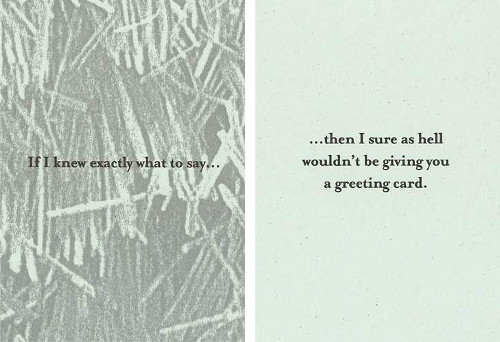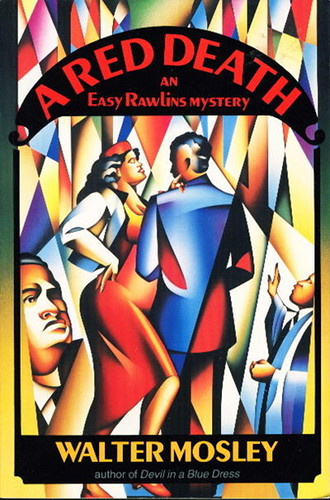The next time somebody special in your life celebrates a birthday, graduation, promotion, or similar important life event, please consider giving him or her a greeting card from SappyCards ![]() .
.
As Though I Were Revering a Goddess
Excerpt from the novel Naomi ![]()
![]() by Junichirō Tanizaki
by Junichirō Tanizaki ![]()
![]()
“Hey! Naomi!” I said one night, shaking her. (I wasn’t speaking to her as though she were a child any more.) She was feigning sleep and had a particularly cold expression on her face. “What’re you doing, pretending to be asleep? Do you hate me that much?”
“I’m not pretending to be asleep. I just wanted to go to sleep, so I closed my eyes.”
“Then open them. You have no business keeping your eyes closed when I talk to you.”
Reluctantly, she opened her eyes slightly. The narrow line of her eyes, peering at me through her lashes, made her face look all the more cold and cruel.
“Well? Do you hate me? If you do, say so.”
“Why do you ask such a thing?”
“I can tell by the way you act. We don’t quarrel any more, but we’re lashing out at each other in our hearts. Can we still call ourselves man and wife?”
“You’re the one who’s lashing out. I’m not.”
“I think it’s mutual. Your attitude keeps me on edge. I start getting suspicious, and…”
Naomi interrupted with her sarcastic, nasal laugh. “Let me ask you, then. Is there something suspicious about my attitude? If there is, let’s see some evidence.”
“I don’t have any evidence, but…”
“Isn’t it unreasonable to suspect me without any evidence? You can’t expect us to live like man and wife when you won’t trust me or let me have any freedom and my rights as your wife. Do you think I don’t know anything? I know you’ve been reading my mail and following me around like a detective.”
“That was wrong of me, but I’m all raw nerves because of what happened before. You’ve got to understand that.”
“What do you want me to do? Didn’t we promise not to talk about the past?”
“I want you to open your heart to me. I want you to love me so that my nerves will settle.”
“I can’t, if you don’t trust me.”
“I’ll trust you. From now on I’ll trust you.”
Here I have to acknowledge how base males are. Whatever transpired in the daytime, I always gave in to her at night. Or, rather than “gave in,” I should say that the animal in me was subdued by her. The truth is that I still didn’t trust her at all, but the animal in me forced me to submit blindly to her; it led me to abandon everything and surrender. Naomi wasn’t a priceless treasure or a cherished idol any more; she’d become a harlot. Neither lovers’ innocence nor conjugal affection survived between us. Such feelings had faded away like an old dream. Why did I still feel anything for this faithless, defiled woman? Because I was being dragged along by her physical attractions. This degraded me at the same time it degraded Naomi, because it meant that I’d abandoned my integrity, fastidiousness, and sincerity as a man, flung away my pride, and bent down before a whore, and I no longer felt any shame for doing so. Indeed, there were times when I worshipped the figure of this despicable slut as though I were revering a goddess.
Glistening Fabric
Excerpt from the novel Naomi ![]()
![]() by Junichirō Tanizaki
by Junichirō Tanizaki ![]()
![]()
I often used phrases like “mix with Westerners” and “like a Westerner.” Clearly this pleased her. “What do you think?” she’d say, trying out different expressions in the mirror. “Don’t you think I look like a Westerner when I do this?” Apparently she studied the actresses’ movements when we went to the movies, because she was very good at imitating them. In an instant she could capture the mood and idiosyncrasies of an actress. Pickford laughs like this, she’d say; Pina Menicheli moves her eyes like this; Geraldine Farrar does her hair up this way. Loosening her hair, she’d push it into this shape and that.
“Very good–better than any actor. Your face looks so Western.”
“Does it? Where does it look Western?”
“Your nose and your teeth.”
“My teeth?” She pulled her lips back and studied the row of teeth in the mirror. They were wonderfully straight and glossy.
“Anyway, you’re different from other Japanese, and ordinary Japanese clothes don’t do anything for you. How would it be if you wore Western clothes? Or Japanese clothes in some new style?”
“What kind of style?”
“Women are going to be more and more active in the future. Those heavy, tight things they wear now won’t do.”
“How about a narrow-sleeved kimono with an informal sash?”
“That’d be fine. Anything’s all right as long as you try for original styles. I wonder if there isn’t some outfit that’s neither Japanese, Chinese, or Western…”
“If there is, will you buy it for me?”
“Of course I will. I’m going to get all sorts of clothes for you, and we’ll switch them around every day. You don’t need expensive stuff. Muslin and common silk will do. The important thing is to have original designs.”
After this conversation, we often went to drapers and department stores together to look for fabric. We must have spent every Sunday at Mitsukoshi and Shirokiya. But it was hard to find patterns we liked, because neither of us was satisfied with the usual women’s things. Run-of-the-mill drapers were of no use to us, so we went to cotton-print dealers, carpet shops, and stores that specialized in Western fabrics. We even went on full-day outings to Yokohama, where we dragged ourselves from shop to shop in Chinatown and to dry goods stores in the foreign settlement, foraging for the right fabrics. We studied the outfits of Westerners we passed on the street and scrutinized every shop window. If there was something unusual, one of us would cry, “Look, how about that?” We’d rush into the shop, have the fabric brought in from the window and see how it looked on Naomi, draping it from her chin and wrapping it around her torso. We had great fun walking around and window-shopping this way, even when we didn’t buy anything.
Nowadays, it’s fashionable for women to make summer kimonos out of organdy, Georgette, and cotton voile, but Naomi and I were probably the first to use these fabrics. For some reason the textures were very becoming to her. We weren’t interested in conventional kimonos. Instead, she made the material into narrow-sleeved kimonos, pajama suits, and robes that looked like nightgowns. Sometimes she’d simply wrap a bolt of cloth around her body and fasten it with brooches. Dressed in one or another of these outfits, she’d parade around the house, stand in front of the mirror, and pose while I took pictures. Wrapped in gauzy, translucent clothing of white, rose, or pale lavender, she was like a beautiful large blossom in a vase. “Try it this way; now this way,” I’d say. Picking her up, laying her down, telling her to be seated or to walk, I gazed at her by the hour.
Under the circumstances, her wardrobe grew enormously in the space of a year. She couldn’t possibly store it all in her room; she hung things or rolled them up in piles everywhere. We could have bought a cabinet, but that would have cut into our clothes budget, and in any case there was no need to treat her clothes that carefully. She had lots of them, but they were all inexpensive and quick to wear out. It was more convenient to spread them around where we could see them and try various combinations whenever we were in the mood. They also served as decoration for the rooms. The atelier was just like a property room at the theater, with clothes strewn everywhere–on the chairs, on the sofa, in corners, even on the stairs and over the theater box rail. Most of them were soiled, because Naomi was in the habit of wearing them right against her skin, and we hardly ever laundered them.
Most of the designs were so outrageous that she could wear only about half of them outside the house. Her favorite, which she often wore when we went out, was a lined, cotton-padded satin kimono with a matching jacket. Both the jacket and the kimono were a solid, reddish brown, as were the thongs on her sandals and the cord on her jacket. Everything else–the neckpiece, the sash fastener, the lining of the underkimono, the sleeve ends, and the trim at the bottom–was pale blue. The narrow sash, too, was made of thinly padded satin; she wound it tightly, high on her chest. For the neckpiece, she bought a ribbon, wanting something that looked like satin. She wore this outfit most often when we went to the theater in the evening. Everyone turned to look as she walked through the lobby of the Yūrakuza or the Imperial Theater in that glistening fabric.
“I wonder who she is?”
“An actress, maybe?”
“A Eurasian?”
Hearing the whispers, we’d move proudly toward them.
If that outfit amazed people, then Naomi could scarcely have gone out in her more fanciful creations, however much she liked to be unconventional. They were no more than containers–a variety of packages into which I’d put her when we were home, and gaze at her. I suppose it was like trying out a beautiful flower in one vase, then another. There’s nothing so surprising about this. While she was my wife, she was also a rare, precious doll and an ornament. She never wore ordinary clothes at home. Her most expensive indoor outfit was a three-piece, black velvet suit that she said was inspired by a costume she’d seen a man wear in an American movie. When she put it on with her hair rolled up under a sports cap, she was as sensuous as a cat. Both summer and winter (when we heated the room with a stove), she often wore nothing but a loose gown or a bathing suit. She had countless pairs of slippers, including embroidered ones from China. She always wore them without socks.
People Who Use the Very Freedom We Give Them in Order to Burn Down What We Believe
Excerpt from the novel A Red Death ![]()
![]() by Walter Mosley
by Walter Mosley ![]()
![]()
Craxton sat back for a moment and appraised me. He put his hand flat against my file like a man swearing on a sacred text. Then he leaned across the table and began to whisper, “You see, Easy, in many ways the Bureau is a last line of defense. There are all sorts of enemies we have these days. We’ve got enemies all over the world; in Europe, in Asia, everywhere. But the real enemies, the ones we really have to watch out for, are people right here at home. People who aren’t Americans on the inside. No, not really.”
He drifted off into a kind of reverie. The confusion must have shown on my face, because he added, “And we have to stop these people. We have to bring them to the attention of the courts and the Congress. So even if I have to overlook some lesser crimes…” He paused and stared at me again. “…like petty tax theft, I will do that in order to get the bigger job done.”
“Listen, man,” I said. “you got me by the nuts on this one, so I’ma do what you want. But get to it, alright? I’m a little nervous with all this talk an’ these files an’ shit.”
“Okay,” he said, and then he took a deep breath. “Chaim Wenzler has been organizing people through the unions. He’s been giving them ideas about this country that are lies and unpatriotic. There’s more to it, but I can’t tell you what because we can’t get anybody close enough to him to really find out what it is that he’s up to.”
“Why don’t you just arrest him? Cain’t you do that?”
“He’s not what we want, Easy. It’s what he represents, the people he works with–that’s what we need to know.”
“An’ you cain’t make him tell you all this stuff?” I was well aware of the persuasive powers of the law.
“Not this man.” There was a hint of admiration in Craxton’s tone. “And it’s worth our time to find out who he’s working with, without him knowing it, that is. You see, Wenzler is bad, but where you can see someone like him you know that there’s serious rot underneath.”
“Uh-huh.” I nodded, trying to look like I was right up there with him. “So what do you need me for if you already know that this guy is the center of the problem? I mean, what could I do?”
“Wenzler is small potatoes. He’s a fanatic, thinks that America isn’t free and the Reds are. All by himself he’s nothing, just a malcontent with a dull ax to grind. But it’s just that kind of man that gets duped into doing the worst harm.”
“But I don’t even know this guy, how you expect me to get next to him?”
“Wenzler works in the Negro churches. We figure that he’s making his contacts down there.”
“Yeah?”
“He’s working three places right now. One of them is the First African Baptist Church and Day School. That’s your neighborhood, right? You probably know some of that flock.”
“So what does he do at the church?”
“Charity,” Agent Craxton sneered. “But that’s just a front. He’s looking for others who are like him; people who feel that this country has given them a raw deal. He feels like that, doesn’t hardly trust a soul. But the thing is, he’ll trust you. He’s got a soft spot for Negroes.”
It was at that moment I decided not to trust Agent Craxton.
“I still don’t see why you need me. If the FBI wants something on him why don’t you just make it up?” I was serious.
Agent Craxton took my meaning and laughed. It sounded like an asthmatic’s cough.
“I don’t have a partner, Easy. Did you notice that?”
I nodded.
“There’s no crime here, Mr. Rawlins. We’re not trying to put somebody in jail for tax evasion. What we are doing is shedding light on a group of people who use the very freedom we give them in order to burn down what we believe.”
I wondered if Agent Craxton had political aspirations. He sounded like a man running for office.
“There is no crime to arrest him for. No crime that we know of, that is. But if you get next to him you might find out something. You might see where we could come in and arrest him for a crime the courts would recognize. You might be our means to his end.”
“Uh-huh,” I grunted. “But what do you mean about not havin’ no partner?”
“I’m a special kind of agent, Easy. I don’t just look for evidence. Some agents are in the business of solving crimes. My job is to avoid the damage before it’s done.”
“Yeah,” I said, nodding. “But now lemme get this straight. You want me to get to know this Wenzler guy, then get him to trust me so I find out if he’s a spy?”
“And then you find out all you can, Easy. We let you pay your taxes and go back home.”
“And what if I don’t find out somethin’ that you could use? What if it’s just that he complains a lot but he don’t do nuthin’ really?”
“You just report to me. Say once a week. I’ll know how to read it. And when you’re through the IRS will let you alone.”
“All that sounds good, but I need to know somethin’ first.”
“What’s that?”
“Well, you talkin’ ’bout my own people with this conspiracy stuff. An’ if you want my opinion, all that is just some mistake. You know I live down there an’ I ain’t never heard that we some kinda communist conspiracy or whatever.”
Craxton just smiled.
“But if you wanna believe that,” I continued, “I guess you can. But you cain’t get me t’ go after my own people. I mean, if these guys broke the law like you say, I don’t mind that, but I don’t wanna hurt the people at First African just ’cause they run a charity drive or something’.”
“We see eye to eye, Easy,” Craxton said. “I just want the Jew, and whatever it is he’s up to. You won’t even know I was there.”
“So what’s this stuff about this other guy, Lavender?”
“You remember him?”
“No.”
“We need to find Lavender. He’s worked closer with Wenzler than anyone. If we could get him into custody I’m sure that he’d be able to help.”
“You sound like he’s missin’?”
“He quit Champion three weeks ago, and nobody has seen him since. We’d appreciate a line on him, Easy. Finding Lavender would go a long way toward settling your taxes.”
“But you just wanna talk to ‘im?”
“That’s right.” Craxton was leaning so far across the table that he could have jumped down my throat.
I knew that he was lying to me, but I needed him, so I said, “Okay,” and we shook hands.
The orange juice in my screwdriver was canned; it left a bitter metallic taste in my mouth. But I drank it anyway. Screwdriver was what I asked for; I guess I asked for Craxton too.




